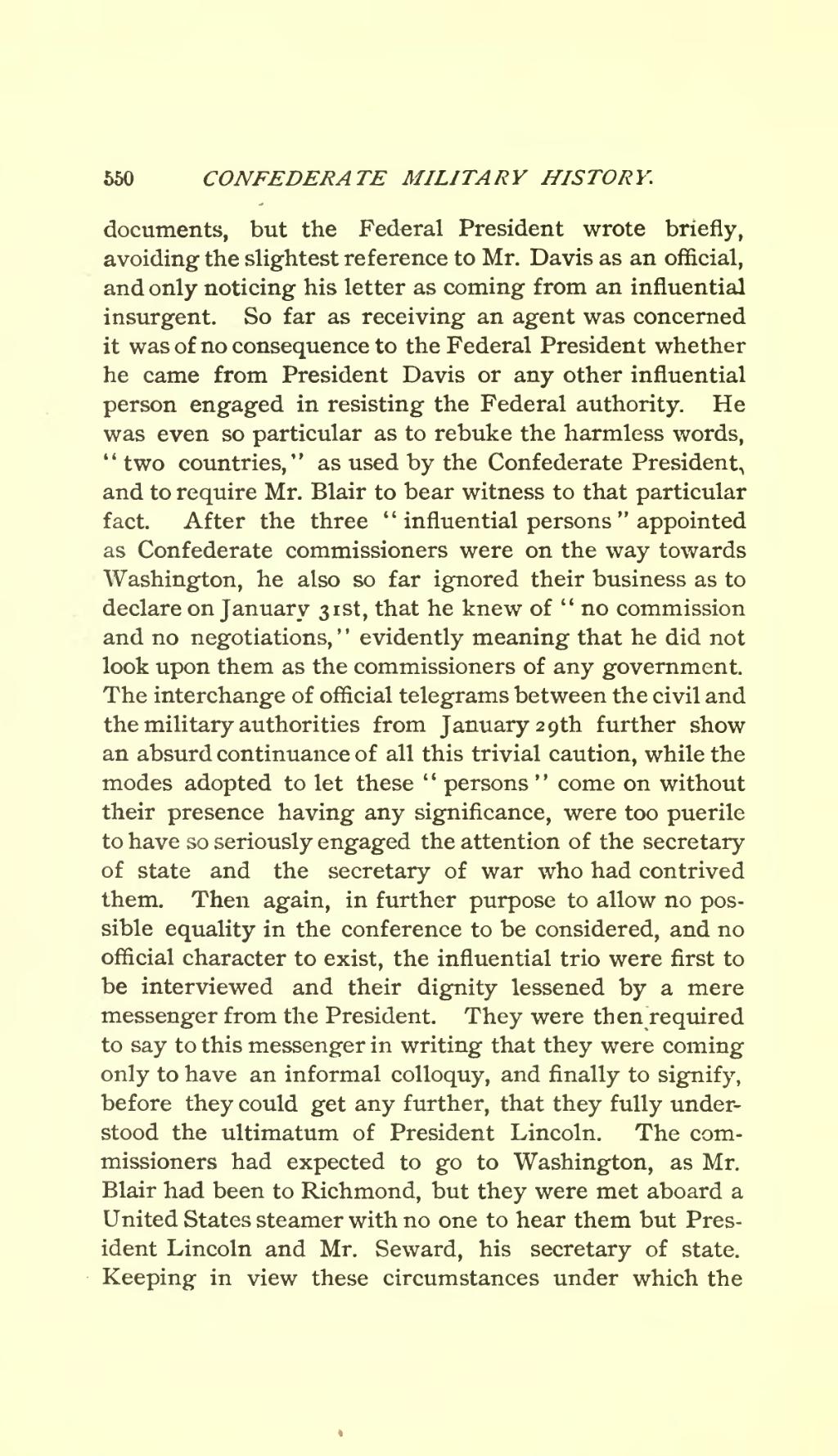documents, but the Federal President wrote briefly, avoiding the slightest reference to Mr. Davis as an official, and only noticing his letter as coming from an influential insurgent. So far as receiving an agent was concerned it was of no consequence to the Federal President whether he came from President Davis or any other influential person engaged in resisting the Federal authority. He was even so particular as to rebuke the harmless words, "two countries, as used by the Confederate President, and to require Mr. Blair to bear witness to that particular fact. After the three " influential persons " appointed as Confederate commissioners were on the way towards Washington, he also so far ignored their business as to declare on January 3ist, that he knew of " no commission and no negotiations, evidently meaning that he did not
look upon them as the commissioners of any government. The interchange of official telegrams between the civil and the military authorities from January 29th further show an absurd continuance of all this trivial caution, while the modes adopted to let these " persons " come on without their presence having any significance, were too puerile to have so seriously engaged the attention of the secretary of state and the secretary of war who had contrived them. Then again, in further purpose to allow no possible equality in the conference to be considered, and no official character to exist, the influential trio were first to be interviewed and their dignity lessened by a mere messenger from the President. They were then required to say to this messenger in writing that they were coming only to have an informal colloquy, and finally to signify, before they could get any further, that they fully understood the ultimatum of President Lincoln. The commissioners had expected to go to Washington, as Mr. Blair had been to Richmond, but they were met aboard a United States steamer with no one to hear them but President Lincoln and Mr. Seward, his secretary of state. Keeping in view these circumstances under which the
Page:Confederate Military History - 1899 - Volume 1.djvu/588
Jump to navigation
Jump to search
550
CONFEDERATE MILITARY HISTORY.
